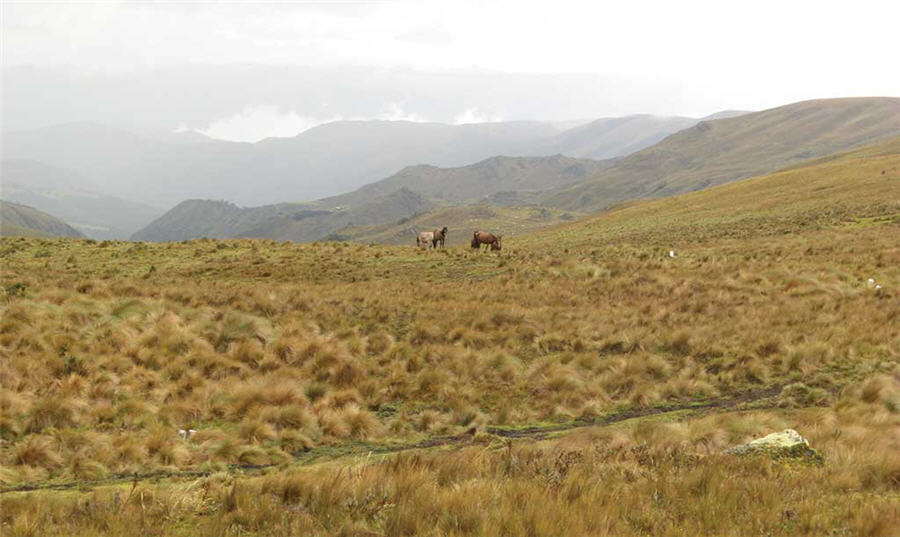Proposal to ban big mines put to vote in southern Ecuador

Ecuador’s fledgling mining industry faces another test on Sunday when voters in the third-largest city will decide whether to ban major projects within municipal limits.
Alongside the country’s presidential and legislative elections, residents of Cuenca in the southern Andes mountains will be asked if they want large-scale mining within the drainage basins of five rivers. While there are no big mines operating in the area yet, the referendum threatens to derail more than 40 concessions seeking to tap gold, silver and copper reserves.
Ecuador became a burgeoning copper and gold hot spot, with prospectors and developers including BHP Group and Newcrest Mining Ltd. flooding into a country that’s looking to reduce its dependence on oil. But volatile policies and politics and often tense community relations have inhibited investments.
The referendum threatens to derail more than 40 concessions seeking to tap gold, silver and copper reserves
In a nationwide referendum three years ago, voters blocked mining in protected and urban areas. While the government hoped that would provide legal certainty for projects in general, mining opponents including Cuenca Mayor Pedro Palacios latched onto the limits on urban mining development to push for a local ban in some rural areas as well.
“Mining can be done elsewhere,” not in areas where it can affect community water supplies, said Ana Cecilia Salazar at Cabildo por el Agua, an NGO supporting the ban.
Last year, mining in Ecuador generated $810 million in exports, $430 million in taxes and $374 million in foreign direct investment. The Energy and Resources ministry didn’t respond to a request for comment on the Cuenca plebiscite.
Salazar said she expects about 80% of voters to reject large-scale mining around Cuenca, similar to the 87% in a 2019 referendum in nearby Giron. While restrictions wouldn’t be applied to small-scale and artisanal mining, she said the idea is to continue working toward a complete ban.
The wording in Sunday’s ballot took into account Ecuador’s Constitutional Court, which had previously refused to grant referendums with more vaguely phrased questions. The court has said existing projects couldn’t be retroactively scrapped.
One of the two major investments within Cuenca’s limits is Chinese-owned Junefield’s Rio Blanco. The gold project has sued for arbitration after protesters set fire to its mining camp and Cuenca courts ruled it failed to adequately consult indigenous residents.
The other is INV Metal Inc.’s Loma Larga gold project, with a planned investment of $432 million and a start date of 2023. To continue to develop the mine “is a right that emanates from the Constitutional Court, the highest court of the land,” said INV’s Ecuador General Manager Jorge Barreno. “We all have the obligation to protect the water,” and the company is working with the water authority and universities to safeguard it, he said.
Among another 44 projects in the pipeline, Southern Copper Corp.’s Ruta del Cobre is the most advanced. Representatives of Rio Blanco and Ruta del Cobre declined to comment.
The ban could stop Loma Larga from going ahead because it still requires government approvals, Salazar said. That’s debatable given the court’s track-record of trying to strengthen legal security, said Xavier Andrade, a lawyer specializing in the mining industry.
“Who will carry out exploration if you won’t be able to recover the investment?” he said. “This will all end up in another legal battle before the Constitutional Court.”
Still, the referendum’s outcome could weigh on companies’ interest in investing in Ecuadorian mining.
“People across the political spectrum are even saying that this vote is more important for Cuenca’s future than the presidential election,” said Daniel Orellana, a researcher at University of Cuenca.
(By Stephan Kueffner)
{{ commodity.name }}
{{ post.title }}
{{ post.date }}




Comments